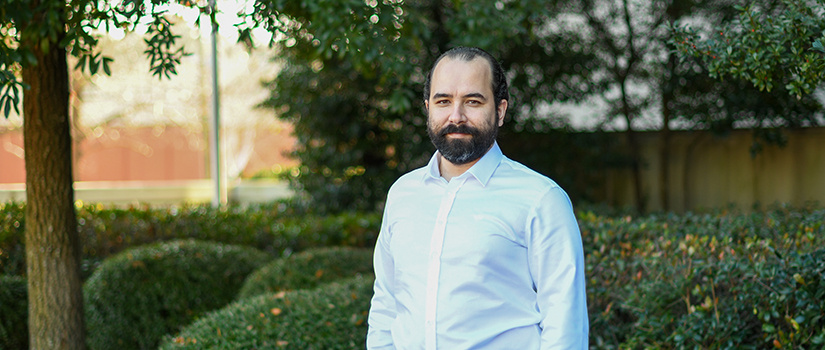New faculty member making 5G communications more effective, efficient and dynamic
Society has changed its expectations of what things like cell phones can do — we want to be able stream, download, and communicate from anywhere, not only where cell towers or routers are. So, researchers and engineers like Yavuz Yapici and his team are working on finding new ways to meet the needs of the public.
We are researchers, but we are also engineers. So, our research should be meaningful and useful for the industry, but also for the community.
-Yavuz Yapici, Electrical Engineering
Yapici recently joined the college’s Electrical Engineering Department as an assistant professor, teaching Digital Signal Processing (ELCT 321), with an extensive background in the industry. Working alongside David Matolak and Alphan Sahin, he plans on improving the data race with multi-user communications, expanding the current limitations of our cellular system and also striving to add green standards to the field.
“At the end of the day we need to produce technology that is actually useful,” Yapici says. “It needs to meet current needs of the industry, but also of the people.”
Right now, the team is working on finding ways to make systems more energy efficient, by optimizing and maximizing the amount of energy used in obtaining certain data rates. One way it is doing this is by utilizing drones, or UAVs.
“We are trying to understand the effective transmissions schemes of UAVs, like the space station or what first responders use on the ground,” Yapici explains. “So we need to integrate new ideas.”
As the UAV market grows, Yapici and his team are working to incorporate UAVs into cellular systems. This would allow them to be flown outside of peoples’ visual lines of sight, which would result in broader control of UAV systems.
“If we have smart UAVs, we can survey areas after big natural disasters, which can help us see more and ultimately do more to clean up and help people after such things happen,” Yapici says. “They can do more and see more than the people on the ground which is really beneficial.”
Yapici and his team are keeping consumers in mind when they research new technologies and communication improvements by looking to the future. Things like 5G and new communication integration not only need to be innovative for the changing times, but they need to remain relevant and, most importantly, useful.
“We are researchers, but we are also engineers,” he says. “So, our research should be meaningful and useful for the industry, but also for the community.”
